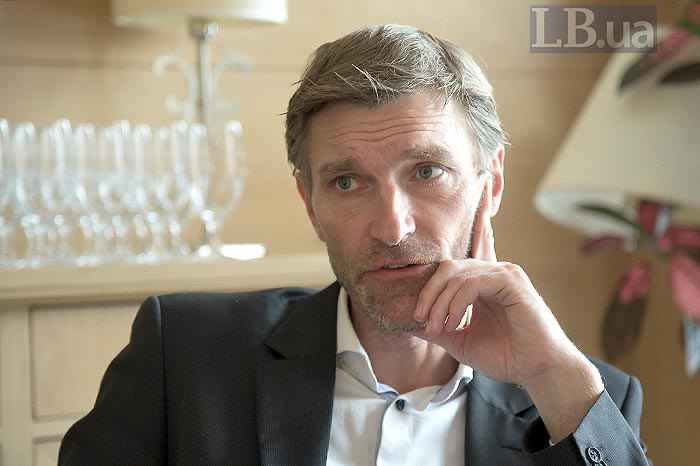
You came here as a lecturer on the topic of procedural interview and the experience of its implementation in Norway, and the most common mistakes in the administration of justice. Could you elaborate on the topic a little bit?
Like most detectives around the world, when I started in the police in Norway more than 25 years ago, I was trained to believe that once we get a suspect, it was my job to get him to confess. And this confession culture was nothing unique to Norway - we could see it all around the world. We have inherited this thinking. It comes naturally to human beings. If you stand before a problem, and then you think you have a solution, the human mind automatically starts searching for information that confirms your view of the world. That's how the human mind works. And when you have a justice system that premieres confessions, then you have a dangerous situation in which the police are encouraged to think narrowly, to search for confessions. And this is common.
But what happened in Norway, now soon 30 years ago, was that my colleagues, my friends interrogated a young boy suspected of a murder - hours after hours, days after days - in combination with total isolation in custody. And then this young boy confessed. He retracted his confession quite soon afterwards and said: "No, I didn't commit this murder." But the police had the confession, and a prosecution service used that initial confession. And the young boy was convicted in the first trial - for murder. Now, what happened was that the defence lawyer to this young boy brought in an expert professor from the United Kingdom. The professor had been studying police interrogations for 20 years already in the United Kingdom. He had been involved in judicial scandals in the UK involving false confessions 10 years earlier - the Guildford Four, the Birmingham Six - these famous cases.
When he read the case files and interviewed the young boy, he interviewed my colleague, the police detective, and then he told the court as an expert witness... he criticised the Norwegian police heavily. He said that the Norwegian police, in this case, had used manipulative confession-orientated techniques in combination with isolation in custody. And if you don't have other evidence apart from this confession, you must be very careful because this confession can be false.
And I remember, as I was a police officer at that time - not directly involved in that case, but I knew the detectives, I remember our first reaction: "Who is this professor? Coming to our country and telling us that we are using dangerous techniques! No-no, you have to go to other parts of the world! This is Norway, you know. We are a civilised country."
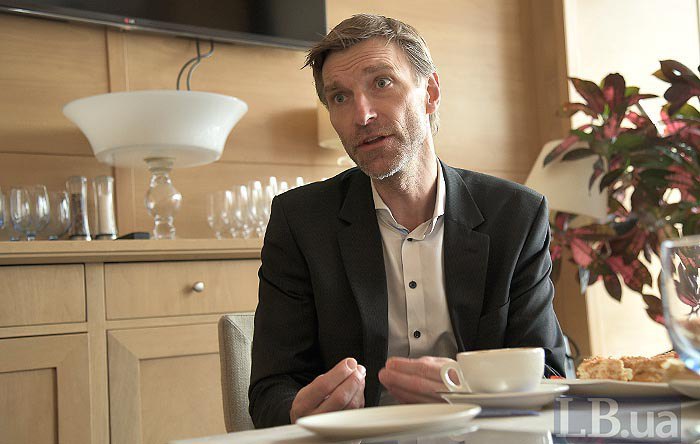
But what I and some of my colleagues saw... Particularly I was really interested in his report. And what I saw is that he was referring to books, to scientific studies about police interrogations that I'd never heard of. I had never seen that research. You have to keep in mind that this was before the Internet, but this research had been going on for over 10 years in the United Kingdom, and Norway is a neighbouring country of the UK.
And I was a homicide detective at the time. Young, but still with some experience. And I had never heard about it. So, I went to my boss and I said: "At least we should know what this professor is talking about. The knowledge that he is basing his conclusions upon." So, the police commissioner in Oslo agreed that I could take a journey to the United Kingdom and get a master's degree, and start reading this literature to obtain this knowledge.
When I came back after one year - all my study was on police investigations and particularly police interviews - I realized that the professor was right. And I also realized that there was an alternative methodology that had been developed in the United Kingdom 10 years ago. So, what I did was that I brought all that literature and all that knowledge and methodology, translated it into Norwegian and developed it into first national investigative training course in Norway, based on the British PEACE investigative interviewing as a model. And it was immediately embraced by my colleagues because in Norway at that time we had no official training in interrogations. They were based on experience, we learned tricks of the trade from our older colleagues, and learned tricks for ourselves. Of course, we had plenty of education in the law, but how to actually conduct the interview - we had no training in it.
And what I've seen when I traveled around the world is that Norway was not in a unique position in that way. What we see is that although police interviewing of victims, witnesses and suspects is the most important tool for detectives, it's what we use every day to gather information so, of course, how we actually conduct interviews has a profound impact not only on the case that we are investigating but also, of course, on the public perception of the police.
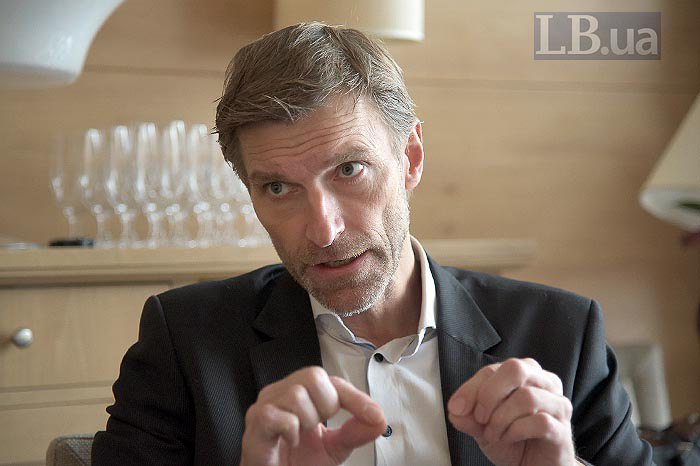
As we talk right now, I'm sure there are hundreds, perhaps thousands of interviews in Ukraine alone in which people meet the power in quite intimate personal settings (like the one we have now). And, of course, how the Ukrainian police and police, in general, meet the people has a profound impact on the people's trust in the system. And what we learned and understood was that the scientists who had studied this interpersonal interactions found that we made quite a few mistakes, that we had a potential to actually gather a more accurate and more reliable information if we changed our mindsets.
We have to change our mindset. You cannot have police that, once they got some suspicions, follow the intuitive human mind that is geared up to searching for confirmation. Like scientists we have to adopt a more professional methodology, we have to stop and say "Okay, this is the hypothesis. What alternative hypotheses do we need to investigate? What alternative hypotheses are there?" And then we need to check and investigate these alternative hypotheses. We have to try to prove that you are innocent. But if I cannot do that - of course, our main hypothesis - the suspicion - is strengthened.
So this is a change of the mindset, and it is more effective in terms of the fact that if we have detectives investigating the alternative hypotheses who are not finding evidences to support them, then you are left with the best possible explanation. And this thinking... it took quite a few years and many struggles inside the Norwegian police force before this thinking finally was adopted. And today this is the thinking that is taught in all levels in the Norwegian police college and is really starting to sink in.
I'm not saying that our system is perfect in any way, but I'm saying that we have gone through a significant change in which it was the mindset of the detective that was the most important change. Now this is most evident in the way we interview because that's when we actually gather information and how we actually carry out our investigations. So what we are saying now is that we found methodology that helps us operationalize the presumption of innocence in an effective way.
Changing Police Mindsets: From Coercion to Justice from APT Geneva on Vimeo.
So today I'm going to talk to colleagues from Ukraine. I'm not here to tell them what to do. I'm not even here to advise them what to do. They must find their own way to continue to develop their own justice system from within. But I'm here to tell them about the mistakes that we made in Norway. And that we found out that these mistakes were not typical of Norway, they are typical of the human mind and police organizations all over the world. And I'm here about to talk how we tried to correct these mistakes. My PhD, which I took 10 years later, starts with a case that my best friends investigated. The case in which my colleagues from the homicide squad in Oslo arrested an innocent person for a murder. His name was Steinhingel Johanenson [as heard], and he was in custody in total isolation for six months. And it turned out that he was innocent. We know that because the real perpetrator appeared four days before the trial against Steinhingel was to start has entered the police station in a dramatic way and said: "You have to stop the trial because I'm the murderer." So that's the beginning of my PhD - that particular case. With a question: What goes wrong when it does go wrong with a police investigation? And more importantly: What can we do to prevent it from happening again through scientific knowledge or through research? How can research, the scientific community contribute to developing our justice system?
Look at the healthcare system. Our hospitals. Look at how they've changed. A hundred years ago it was dangerous to go to the hospital. That is where the disease was. But they have changed through science. And that process is starting now in some countries with their police. We are just in the beginning, but we have started and we already have some knowledge telling us that some of the things we thought was the right thing to do in the past, things that we were taught by our colleagues, senior police officers - they are looked up to, they were my idol, I wanted to become like them, was wrong. And much of what they taught me was good, but some of it was not, it could be better. In fact, some of it was contradictory to our laws, to the values that our justice system is founded on.
We found ways to manipulate to get around the law. Just one instance: the law says very clearly that you cannot lie to a suspect in an interview, right? And the Norwegian police officers, including myself, they said: "Okay, of course, we cannot lie but, of course, we can always pretend that we know something."
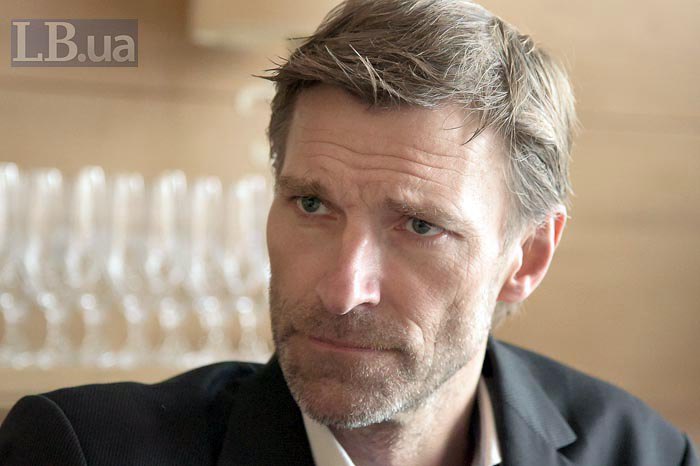
But is it really possible to conduct an interview with a person without using manipulation or even force in the worst case scenario (murderers, terrorists)? How exactly does this methodology work?
Well, first of all, we have to adopt this new thinking style. My job is to gather as much accurate and reliable information as possible. And then, if we all agree upon that, and I'm quite sure that all police officers around the world will agree that that is their job, so then we have to say "Okay, how do you do that?" (So that's a perfect question.) And, of course, if you want information from a person sitting next to you, you have to stimulate the communication. That's the first foundation: how you best communicate with another human being.
And if you think that this approach [beating his fist into his palm, portraying violent methods] stimulates communication, then you are wrong, it doesn't. What stimulates ethical communication is communication in which the person sitting next you feels that he or she actually is respected, no matter what he or she may be suspected of. And the way we conduct our interviews today is that we have a heavy emphasis on interpersonal communication, based on ethical issues that we know stimulate communication.
There is no hidden agenda, no manipulation. We used to portray ourselves as a suspect's best friend, take him out of jail right before they serve the food there so that you can serve him the food etc. You are pretending that you care for about him or her, this is an instrumental manipulative technique, and that's not what I'm talking about. I'm talking about the personal communication principles that apply in everyday life. They are equally important in interviews, like the one you and I are conducting now. You are respecting me because you are listening, you are allowing me to talk. So that's the first principle — communication.
What other first things you need to do in an interview room? The setting we are at now is quite good. We have equal chairs, we don't sit too close, we don't sit too apart, this is quite similar to the way we set our interview rooms. So there are physical preparations. But, first and foremost, it's mental preparations based on human rights principles.
So the first things we do today is that we tell how we are going to conduct the interview, we give a roadmap. People are nervous when they are summoned to the police. I mean I get nervous myself if I have the police vehicle driving behind me! People are particularly nervous in heavy situations. And nervous people - they don't communicate well. They don't remember well. Everything we get, all the information from witnesses, suspects and victims is based on their memories, so we have to stimulate their ability to actually provide the accurate information through communication. And one of the first things we do is that we tell them about their rights, about the rules for the interview. And then we present their basic human rights: that they don't have to talk to us, that if they wish they can have a lawyer present etc.
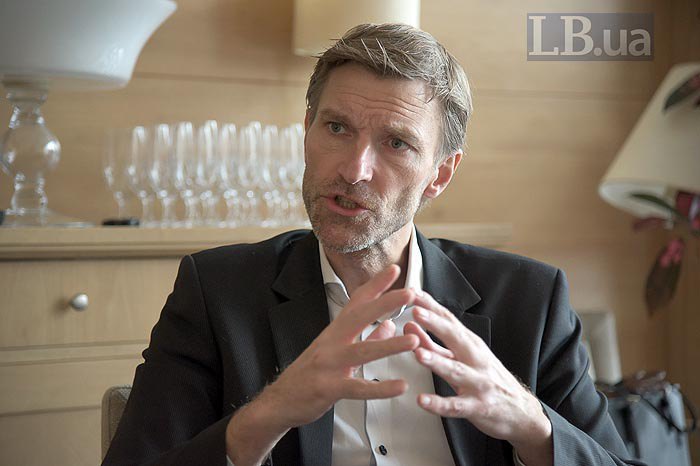
These are not the things that we just say and try to get around. If I communicate those basic human rights to you in the way that we train our police officers to do it, then chances that you'll actually have a professional trust in me are higher. And what research shows is that if the suspect generally trusts the person sitting next to him, then chances are that he will talk more. It's more effective than torture if your aim is to gather accurate and reliable information.
Another principle is what we call the first free recall. After we have explained the ground rules and established communication, then I will, as a detective, inform the witness or the suspect that now he has the opportunity to tell his story from his own perspective, without questions from me, in his own pace as we have plenty of time, and I will not interrupt it and I'm interested to hear his story. And the way we introduce the free recall - we train on it because it's not that easy. And then we come to the very interesting part of modern investigating interviewing. It is listening. We have to teach our police to listen.
There are independent researches from the UK and the US showing that the police officers interrupted every 7.5 seconds because they were not happy with an answer or they wanted something else, or they wanted to start from another perspective or whatever. And interruptions are not good for communication. They are not good for memory. So a very significant part of investigating interviewing is what you are doing now - you are listening to me and you are showing this by nodding, by eye-contact etc. that you are actually listening. You are interested in my version of the case. And that stimulates the communication and it opens up the flow of information. And the criminal justice system is based on information.
I remember when I came to Norway talking about investigating interviewing for the first time, there was one colleague sitting at the back of the classroom. I'm being a little bit stereotypical, but he was a tough police officer, the one you can picture. He stood up after hearing me talk about ethical values and human rights and communication and listening - all these "soft skills", and he said: "Well, you know, we still to have to be allowed to be police officers." And I said: "Yes, of course. What do you mean by that?" And then he said: "Well, being tactical." "Yeah, great. But what do you mean by that? There are some young people that have the same experience as you have. Can you please tell them what you mean?" "Yeah, yeah, you have to play your cards right." "Yeah, I think I'll agree. But can you tell them how? What you've said so far is not helping them."
We could not tell what was a strategically well-conducted interview. Sometimes we could make a good interview strategically, but we didn't know exactly why. We didn't have that thinking, we didn't have the methodology. Today we do. What we do is that we identify the potential evidence against the suspect. That's in the planning before the interview starts. You have to identify your potential evidence. What is it? Why have you arrested the suspect? Let's say it's a fingerprint at the crime scene. Before you start you have to identify all possible alternative explanations for that fingerprint. If the suspect is innocent, how can that fingerprint have landed on the scene of the crime? Because if he is innocent, there must be an alternative explanation that he is not a culprit. So before the interview starts we identify all possible alternative explanations. And when the interview starts we try to test those alternative explanations.
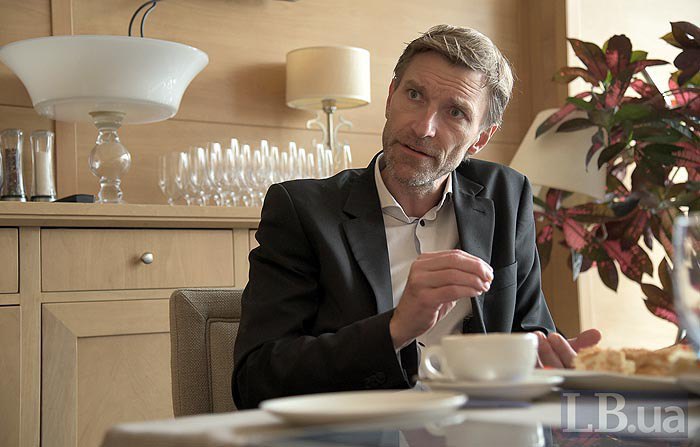
Is there a chance a suspect is manipulating your opinion? He is lying because certainly he wants to be free and he'll never admit he's done something?
Of course, sometimes we meet that. But let me emphasize that what we see is that if we approach suspects with the genuine respect for him or her because he or she is a human being, no matter what that person is suspected of, then we increase the possibility that he or she will talk to you and be honest with you. But not all people come to that conclusion. On the contrary, sometimes we see that guilty suspects will try to get away with it.
But let's come back to the thinking and to the methodology. If I have the fingerprint at the scene of the crime, I am allowed to hold back that evidence for a certain period of time the investigation is ongoing. Of course, we have to reveal the case files, but in the initial stages of investigations the police are allowed to hold back critical information about the investigation. We should be allowed to do that. I will tell you the human rights argument for that afterwards.
But now let's talk about tactical strategic interviews. How to be smart detectives and what happens if you are not strategic in your approach. So we start an interview and I burst into the evidence - like the FBI agents are still taught today with their confession-orientated techniques. They go on like: "Hey man, we've got your fingerprints on the scene, come on, FBI knows that you are lying." This is an immediate disclosure of the evidence in hope to shock the suspect into confessing immediately.
It's not very clever. Because the guilty suspect may then say: "Oh, you have a fingerprint at the murder scene. Well, shit, you know that I'm a drug addict and I had been arrested for heroin possession many times, you know that I finance my addiction through burglary, you know that. You caught me a few times. But I made many-many burglaries when you didn't catch me. Where was this murder? In downtown Kyiv? Well, that's the area where I'd committed robberies or burglaries, so I must have burgled that apartment sometimes. I admit. Anything else you want to know?"
Thus we can just destroy the potential evidence if we are not clever. So what we need to do is, as I've said, is to prepare the interviews strategically. Let me give you an example of how you can do that. Let's say you are a suspect of a murder, and a witness had told the police that the person who took the woman into a car looked like you, and the car even looked like your car. Based on that we arrest you. And we search your car. And let's say we find two strands of hair from the victim in the back of your trunk. With her DNA. Now how you go about that in the interview now? Well, follow the methodology.
Before the interview identify all possible explanations of how those strands of hair could have landed in the car. So I start the interview by holding back the information that I have found. And then I ask you: have you borrowed your car to somebody? How many keys to the car are there? Have you lost the keys anywhere? Has the car been stolen and you have not reported it? Have you transported any goods for anybody? I mean it could be your friend or your football coach who said: "Hey, can you pick up this garbage and drive it?" You know, he could be the murderer. You could be innocent! And we are trying to look for innocents. But if you say: "No, it's my car, nobody else drives it, I have not picked up any hitchhikers recently, I have not transported any goods for anybody, I have two sets of keys" etc.
Then, when I have identified and tested all possible explanations, then it's time for me to ask you, not to confront you: "Okay, can you please explain to me how we have found two strands of hair from the victim in the back of your car? Now, if you are guilty, it's very, very difficult for you to explain that if we have done a proper strategic interview. Of course, there may be some alternative explanations that the police didn't think about.
So this thinking is not less effective, it's more effective. It helps the police officers to think about the alternative explanations. It stimulates openmindedness. But if you are guilty and you have a desire to try to get away with it, it's very difficult.
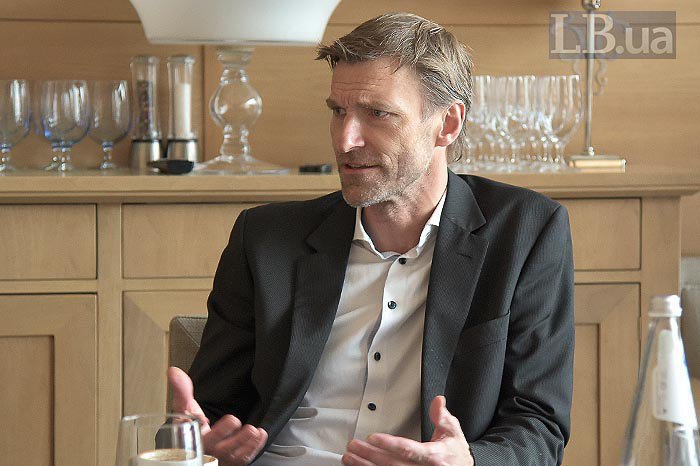
But is there a chance a guilty suspect would still escape the punishment?
Of course. Guilty or not guilty, every person, every suspect has the fundamental human right not to provide any information to police at all. We cannot force anybody to incriminate themselves. That's a human right. When we look at the reasons why we have those principles, you see from historical reasons why that's a good principle for the development of the democratic society.
So yes, of course, I'm not saying that investigative interviewing or science for that matter can cure everything, absolutely not, but what I am saying is that is the way of how to operationalize the values that we believe in a sustainable way. But it's not bulletproof, of course.
The model of investigative interviewing you've created - K.R.E.A.T.I.V. - you've learned it from the UK. It has been active in Norway for 20 years by now. How many countries have adopted it?
The UK was the first nation to build a stronger relationship between the police and scientists. Norway followed it 10 years afterwards. Five years after that in fact in the other part of the world New Zealand became the third country to commit itself officially to investigative interviewing.
Australia is certainly moving in the same direction. The Netherlands, Canada, although the last one is still heavily influenced by Northern American confession-orientated techniques - manipulation in particular, but they are certainly moving towards investigative interviewing.
I've done teaching in great parts of Asia, in Vietnam, Indonesia, and now - more recently - in China. And we see that their police academies, they see that this is the direction they want to go. I'm not saying that investigative interviewing is dominating all interactions between the Vietnamese or the Asian police and its people, no, absolutely not. But they are now starting to understand that they have to change.
Other countries, like Scandinavian countries and all the European countries, certainly have adopted many of the ideas, but what I have recently seen on international conferences on investigative interviewing is that quite a few of my colleagues say: "We are doing investigative interviewing". But when I look at their methodology I see that yet they start off with investigative interviewing, and then they do a bit of interrogation, and then they go back to investigative interviewing. But that's not investigative interviewing, that's not the change of the mindset that we are talking about. I mean that trick has been in the book for years - playing good cop, bad cop etc. The mindset of the detectives with that approach remains the same - how to make one confess. They just use more manipulative, more subtle ways of seeking for their confirmation.
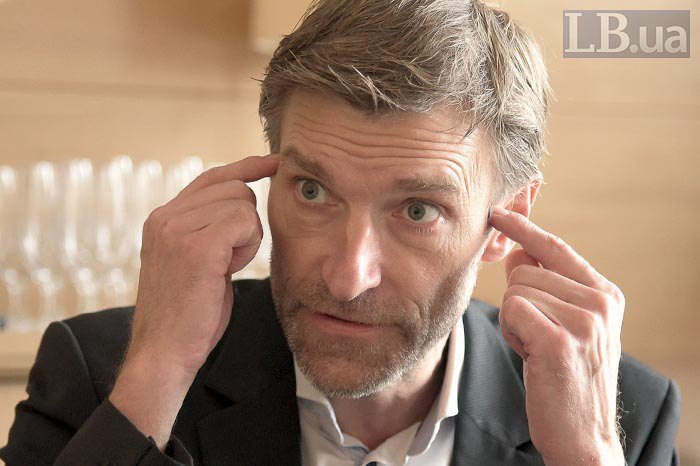
I just wrote a chapter in the book that will come out now together with a British former police officer now with the PhD in psychology, Andy Griffiths, where I'm telling about dangerous cognitive biases, like confirmation bias, primacy effect, group thinking - all these cognitive biases that all human beings have are a challenge.
When we are forming an opinion we start searching for the information that confirms our views of the world. Even neutral information, information that does not really say anything about the issue - you take it into account as a confirmation. But the most scary function of these unconscious mechanisms - psychological mechanisms that all human beings have - is that once we've made up our mind, the human mind has a tendency to explain away or in the worst case even ignore information that points in another direction. It's not corruption, not an evil will, it's how a human mind works. And these unconscious psychological mechanisms are stronger, and they influence us more than we believe. Much more.
I've seen and done national inquiries into areas of justice in Norway and Sweden that you wouldn't believe. One man was convicted of seven separate murders in Sweden and Norway. His name was Thomas Quick. His real name is Sture Bergwall, but he went under the name Thomas Quick. And he became a serial killer. The first one ever in Scandinavia. He confessed to all the unsolved murders in Norway and Sweden. And the detectives believed him. And he was convicted for several separate murders by trials. And he hasn't committed a single murder. How is it possible? It's possible because the police were heavily confirmation-biased, orientated. They knew that he was a serial killer.
After he was convicted for the first murder, everybody in the investigation team knew that he was a murderer, that he was a serial killer. And they only looked for information confirming this. Information indicating that he was bluffing, that these were false confessions was ignored or explained away. Like for instance if he has said that the victim he claimed he killed had blonde hair, when in fact she had very dark hair. Then they talk to psychologists, and psychologists confirm a theory that it is so hard for him to imagine how the girl really looked like because it would be a psychological trauma to him, so in his mind, black becomes white etc. You wouldn't believe how strong these mechanisms are. I know those people who were in the midst of this investigation. They are not bad people, they are not corrupt, they are human beings. Humans make errors all the time. That's why we in science have a methodology to follow to test hypotheses so that we don't fall into these biased pitfalls.
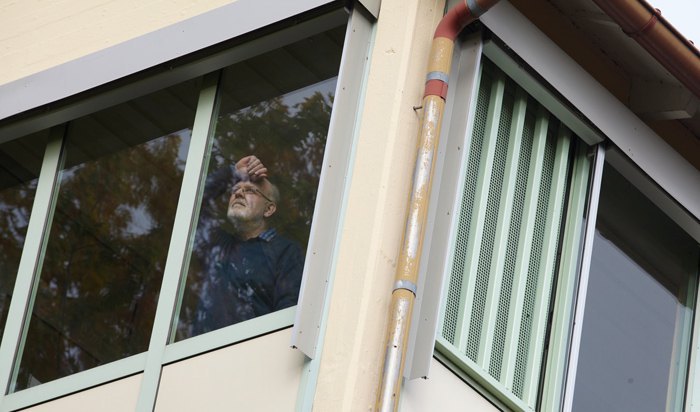
Has investigative interviewing developed over the course of the years? And is still developing now?
We are just at the beginning of creating a strong bridge between police or the justice system and a scientific community. So it will develop. And it has developed. This strategic thinking was not part of the original PEACE concept from the UK, it lacked that. When we adopted investigative interviewing from the UK, we listened to some scientists that said that the concept is very good, but it's lacking information about how to retrieve information from suspects. And this thinking - the strategic use of evidence (SUE) - was an idea based on a PhD that a Swedish scholar did.
He spent five years studying how the Swedish Supreme Court evaluated and tested its evidence. He studied the Swedish police and all the judges of the Supreme Court, how they were thinking when they looked at their cases. And he realized that what they were doing is testing what he called the defence hypotheses. They tested if the suspect could be innocent. And this scholar arranged a training programme for the Swedish police. And one Swedish police officer picked up this thinking. Now we see that this way of thinking stimulates open mindedness. It forces the police officers to think alternatively.
Let me come back to withholding the evidence. Let me challenge the human rights activists or human rights organizations, which have looked at police officers and found that they have plenty of room for improvement of how they investigate crimes, including information sharing, disclosure of evidence. Some human rights organizations have said that the police have to share information with a suspect, it's a human right. Yeah, absolutely. But during the initial stages of an investigation, as I've said before, the police should not be obligated to provide the suspect with the information about the evidence they possess.
There are many reasons why. First of all: if you are innocent, and I tell you immediately we have a strand of hair from the victim in your car, and then you say: "Yeah, well, that's not strange because I've picked up many hitchhikers." Or "I've transported some goods here and there." Or "My car was stolen, but I didn't report it to police." You can come up with a true explanation but you will decrease your chance of being believed later because you will have allegations from the prosecution.
Second, sometimes people falsely confess to crimes they had not committed. More people do that than we actually realize, than we are starting to realize now. If you provide details from the crime scene too early, you help false confessors provide confessions that appear true. So that's also an argument why the police in the initial stages should and must hold back critical information, and test it before it's disclosed.
I'd like to ask you a question concerning Anders Breivik. I know you've been questioning him for more than 200 hours. Breivik's attack was one of the first attacks in recent years committed by so-called lone wolf, since he was the only person engaged. Why exactly did you question him so long having evidence of his crime?
There are at least four important reasons why we needed to interview him so extensively. But let me take the most important reason first. Yes, we know today that he was a lone wolf. But on 22 July 2011, when our capital was turned into a war zone and, unfortunately, terror did not stop there. Anders Breivik continued his killing spree on the island of Utoya and killed as many children and teenagers as he possibly could. Yes, he was arrested on the island with a smoking gun - no question about it, but what you may have missed is that 10 minutes into the first interview Breivik threatened the nation, and he said: "What you've seen here today is not the operation, in fact it's only the firecrackers of what is coming. Terrorist cell two and three will activate any minute".
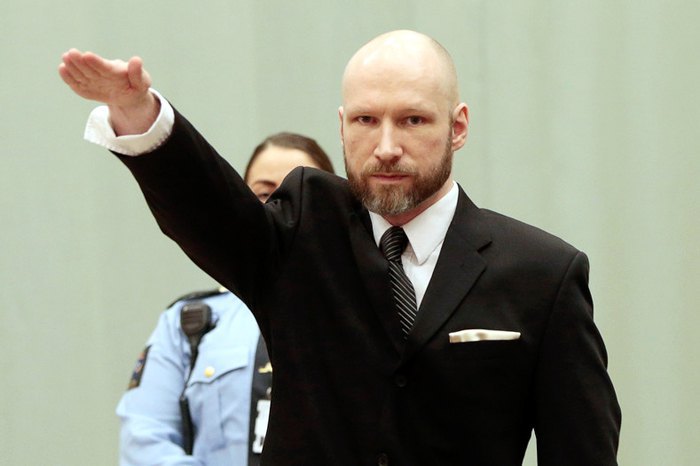
But in the end there were no other cells except for him...
But how would you know that back then? Our city was burning. He had planned this for years. Now today we know. But how would you know then? We had to take him serious. Certainly, it was hard to believe that one man could actually do all this by himself.
During the interviews of Breivik, which I supervised, gradually we were able to gather pieces of evidence that we put together. Gradually we started to understand, or at least came to a suspicion, that a ticking bomb scenario that he presented us with may not be true. There were the police officers and the prosecutors that after perhaps three weeks or a month, let's say we had conducted three or four interviews by them, started to say: "Hey, he's lying. He is a lone wolf." And then we said: "Are you prepared to talk that to the nation and to conclude that? Perhaps we should investigate a bit more". Because that would be a very dangerous conclusion if we're wrong. And we were in no rush. The only thing we were in rush with was to find out whether that was true or not.
So all the interviews and all the information we gathered was to test whether he was saying truth about that or not. I think that after three or four months most of us were quite convinced that he was a lonely wolf. And when the case was presented before the court we felt quite confident that our conclusion was right: he was a lone wolf. But in the initial stages of the investigation that was the main question: was he the lone wolf or was he not? Who had helped him finance this? Was there anybody?
So at the time, it was heavy pressure on us to find out. And Breivik, he would agree to talk about almost anything, but not about cell two and three, not about so-called pan-European organization "The Knights Templar", which we today know was something that he tried to create to increase the threat, the terror and the attention, and something that he probably hopes that in the future will develop.
Did you use an investigative interviewing technique towards Breivik? Was it effective?
Yes, no doubt. When we picked out interviewers on Breivik, certainly we picked those detectives that we knew not only had had training in investigative interviewing, but actually had internalized the principles, the understanding, and in various homicide cases had proven that they were able to actually carry out professional investigative interviews.
So yes, Anders Breivik was subjected to investigative interviewing techniques. Of course, every second of the interviews was video-recorded. His lawyer was present all the time. And we used the methodology to gather as much accurate and reliable information as absolutely possible.
There were other reasons for interviewing him so long. People who have lost children or lost people they love want to know what happened. That information is crucial. So that was also part of why we interviewed him so much. We wanted to gather as much information as absolutely possible.
Another thing is of course that we wanted to know as much as possible about this man. For a future research, for preventing similar attacks in the future.
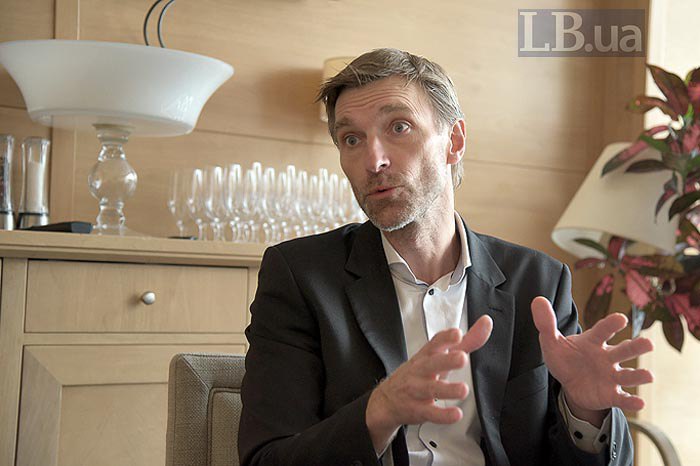
I want to note that this is my personal opinion. Not as an expert, but as a person. I think today the most scary part about my experience with supervising the interviews of Breivik is when I hear some politicians, I read on social media and I recognize their arguments, I recognize the hatred, the racism, the narrow-minded thinking. And those arguments, I've heard them somewhere before, and I know exactly where I heard them. I heard them from Anders Breivik. For me, that's the scariest part.
Even in my country, even in Norway we now have far-right parties that are getting votes. They are scaring people. They are trying to recruit voters by creating fear in the society, telling voters that everything is so bad. But what are they talking about? Look at the crime rate in Norway. It's decreasing and has been decreasing the last 15 years.








